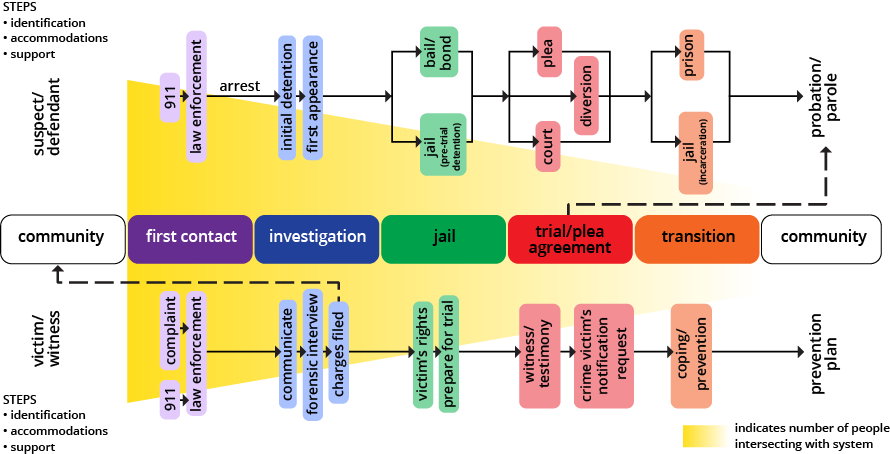


And nationally, 16 percent of the jail population is incarcerated for offenses related to mental illness, mental retardation, or substance abuse. According to the National Alliance on Mental Illness, up to 40 percent of adults with mental illness will come into contact with law enforcement. Persons with mental illness are often jailed for nonviolent, victimless crimes. The awards have been presented annually since 1949. The winning programs were selected from among 53 applicants by the 2006 Achievement Awards Committee, chaired by Jacqueline Maus Feldman, M.D., of Birmingham, Alabama. Both award winners will be presented with plaques during the awards ceremony. In addition, a Silver Award will be presented to Community Support Services of Wyandot Center for Community Behavioral Healthcare, Kansas City, Kansas, and a Bronze Award will be presented to the Missouri Mental Health Medicaid Pharmacy Partnership Project, Jefferson City, Missouri. Both of these programs will receive a $10,000 prize made possible by a grant from Pfizer, Inc. In the category of academically or institutionally sponsored programs, the Perfect Depression Care program of the Henry Ford Health System Department of Psychiatry in Detroit has won the Gold Achievement Award for its exemplary success in implementing evidenced-based treatment for depression in a large health care system, ensuring consumer involvement in care redesign, and achieving dramatic reductions in suicide. The Bexar County Jail Diversion Program of the Center for Health Care Services in San Antonio, Texas, has won the Gold Achievement Award in the category of community-based programs because of its development of an innovative system of jail diversion involving community partnerships and collaborations, which has improved services, enhanced access to and continuity of care for persons with mental illness, and resulted in financial savings.


Non-Maximum-Security settings) for individuals committed to the state hospital system under a 46B or 46C commitment. Understand the review processes involved in determining the most appropriate clinical level of care (e.g.He will also discuss several pilot programs in Texas designed to combat the use of competency restoration as mental health treatment and will offer helpful tips for judges regarding what to look for in a competency evaluation.Īt the conclusion of this session, the participant will: Faubion will share his insight regarding the legislative changes enacted in SB 562 and the new requirements for maximum security unit designation. Faubion possesses a unique, bird’s-eye perspective of the Texas State Hospital System.


 0 kommentar(er)
0 kommentar(er)
